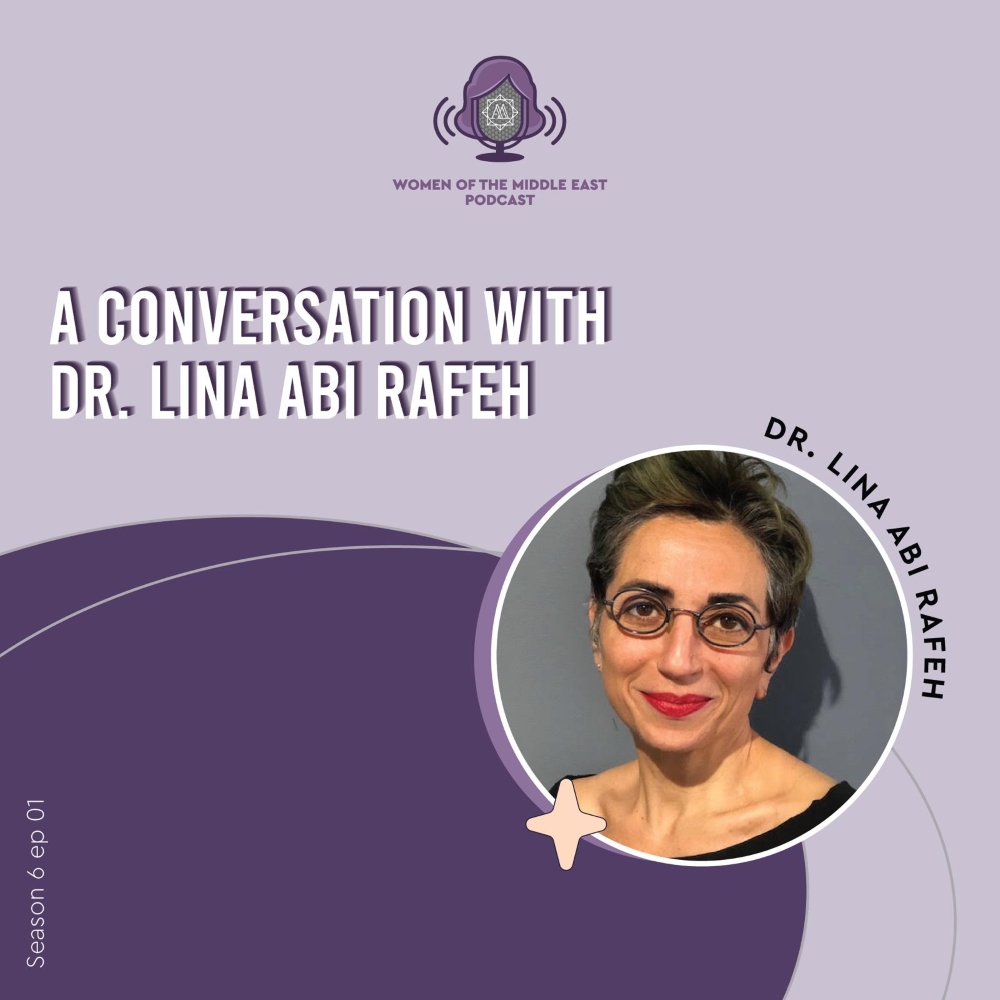Why does he get that stiff when she passes by? Why is it that her initial reaction is turning her head away? In…
Women of the Middle East Podcast Season 5 Episode 4 – Islamic Legal Theory & Ethics
Women of the Middle East Podcast welcomed listeners to an enlightening journey into the experiences of Arab women and the dismantling of cultural stereotypes. In our fifth season, we proudly collaborated with Musawah to explore their groundbreaking book, “Justice and Beauty in Muslim Marriage: Towards Egalitarian Ethics and Laws,” published by OneWorld Academic in December 2022. As the host, a feminist scholar and educator, I had the privilege of facilitating engaging discussions that aimed to reform outdated family laws and advocate for justice within Muslim marriages and families.
In this episode, our attention shifted to section three of the book, titled “Islamic Legal Theory and Ethics.” This section encompassed three thought-provoking chapters proposing innovative approaches to interpretation, aligning Islamic legal tradition with contemporary needs and contexts. We were joined by the esteemed Dr. Nevin Reda, who shared her insights from the chapter titled “The Reform of Jurisprudence and Marriage: A Spiritually Integrative Approach.”
Dr. Nevin began by highlighting the urgent need for #justice within Muslim societies, emphasizing that justice in marriage formed the foundation of a just society. She challenged the traditional conceptualization of marriage as a hierarchical construct rooted in patriarchal interpretations, drawing attention to the significance of reconceptualizing marriage as a nurturing space for mutual spiritual advancement. By infusing values such as fidelity, justice, and compassion, Muslim egalitarian marriages could foster spiritual growth and contribute to the overall well-being of individuals and society.
The conversation delved into the methodological framework proposed by Dr. Nevin, which she termed the “spiritually integrative approach.” This approach integrated the significance of spirituality alongside Islamic jurisprudence (أصول الفقة) to address the needs of the present era. Dr. Nevin explored four key principles: the Quran, Hadith, reason (دليل العقل), and consultation (الشورى). She highlighted the need to reevaluate the relationship between the Quran and Hadith, viewing the latter as historical sources rather than independent authorities. Dr. Nevin introduced the concept of “justice-seeking” (استعدال) derived from Quranic references, emphasizing the importance of gender justice within fiqh.
Furthermore, Dr. Nevin critiqued the principle of consensus (اجماع) within Islamic legal tradition, noting that the Quranic references to consensus were predominantly negative. Instead, she advocated for a more consultative and deliberative approach, aligning with the Quran’s emphasis on consultation (الشورى). Through her proposed methodology, Dr. Nevin sought to reformulate the principles of ethical legal theory in Islam, ensuring they reflected the central message of the Quran while addressing the needs of contemporary society.
The discussion with Dr. Nevin Reda in this episode of Women of the Middle East Podcast highlighted the urgent need to reevaluate Islamic legal theory and ethics in the context of egalitarian Muslim marriages. By challenging traditional interpretations and offering a spiritually integrative approach, Dr. Nevin provided valuable insights for activists, feminists, and practitioners seeking to reform laws and achieve gender justice within their communities.
As we concluded this episode, we acknowledged the transformative potential of “Justice and Beauty in Muslim Marriage” in reshaping the discourse surrounding Muslim family laws and fostering a more equitable society. The Women of the Middle East Podcast, in collaboration with Musawah, remains committed to disseminating knowledge, challenging stereotypes, and promoting dialogue that inspires tangible change within Islamic societies. Through critical engagement with Islamic textual traditions and the amplification of women’s voices, we pave the way for true justice, equality, and a future that upholds the rights and dignity of all women and individuals.
In this episode, our attention shifted to section three of the book, titled “Islamic Legal Theory and Ethics.” This section encompassed three thought-provoking chapters proposing innovative approaches to interpretation, aligning Islamic legal tradition with contemporary needs and contexts. We were joined by the esteemed Dr. Nevin Reda, who shared her insights from the chapter titled “The Reform of Jurisprudence and Marriage: A Spiritually Integrative Approach.”
Dr. Nevin began by highlighting the urgent need for #justice within Muslim societies, emphasizing that justice in marriage formed the foundation of a just society. She challenged the traditional conceptualization of marriage as a hierarchical construct rooted in patriarchal interpretations, drawing attention to the significance of reconceptualizing marriage as a nurturing space for mutual spiritual advancement. By infusing values such as fidelity, justice, and compassion, Muslim egalitarian marriages could foster spiritual growth and contribute to the overall well-being of individuals and society.
The conversation delved into the methodological framework proposed by Dr. Nevin, which she termed the “spiritually integrative approach.” This approach integrated the significance of spirituality alongside Islamic jurisprudence (أصول الفقة) to address the needs of the present era. Dr. Nevin explored four key principles: the Quran, Hadith, reason (دليل العقل), and consultation (الشورى). She highlighted the need to reevaluate the relationship between the Quran and Hadith, viewing the latter as historical sources rather than independent authorities. Dr. Nevin introduced the concept of “justice-seeking” (استعدال) derived from Quranic references, emphasizing the importance of gender justice within fiqh.
Furthermore, Dr. Nevin critiqued the principle of consensus (اجماع) within Islamic legal tradition, noting that the Quranic references to consensus were predominantly negative. Instead, she advocated for a more consultative and deliberative approach, aligning with the Quran’s emphasis on consultation (الشورى). Through her proposed methodology, Dr. Nevin sought to reformulate the principles of ethical legal theory in Islam, ensuring they reflected the central message of the Quran while addressing the needs of contemporary society.
The discussion with Dr. Nevin Reda in this episode of Women of the Middle East Podcast highlighted the urgent need to reevaluate Islamic legal theory and ethics in the context of egalitarian Muslim marriages. By challenging traditional interpretations and offering a spiritually integrative approach, Dr. Nevin provided valuable insights for activists, feminists, and practitioners seeking to reform laws and achieve gender justice within their communities.
As we concluded this episode, we acknowledged the transformative potential of “Justice and Beauty in Muslim Marriage” in reshaping the discourse surrounding Muslim family laws and fostering a more equitable society. The Women of the Middle East Podcast, in collaboration with Musawah, remains committed to disseminating knowledge, challenging stereotypes, and promoting dialogue that inspires tangible change within Islamic societies. Through critical engagement with Islamic textual traditions and the amplification of women’s voices, we pave the way for true justice, equality, and a future that upholds the rights and dignity of all women and individuals.
Link to the article
You may also check
Welcome to Season 6 of the Women of the Middle East podcast, which present…


